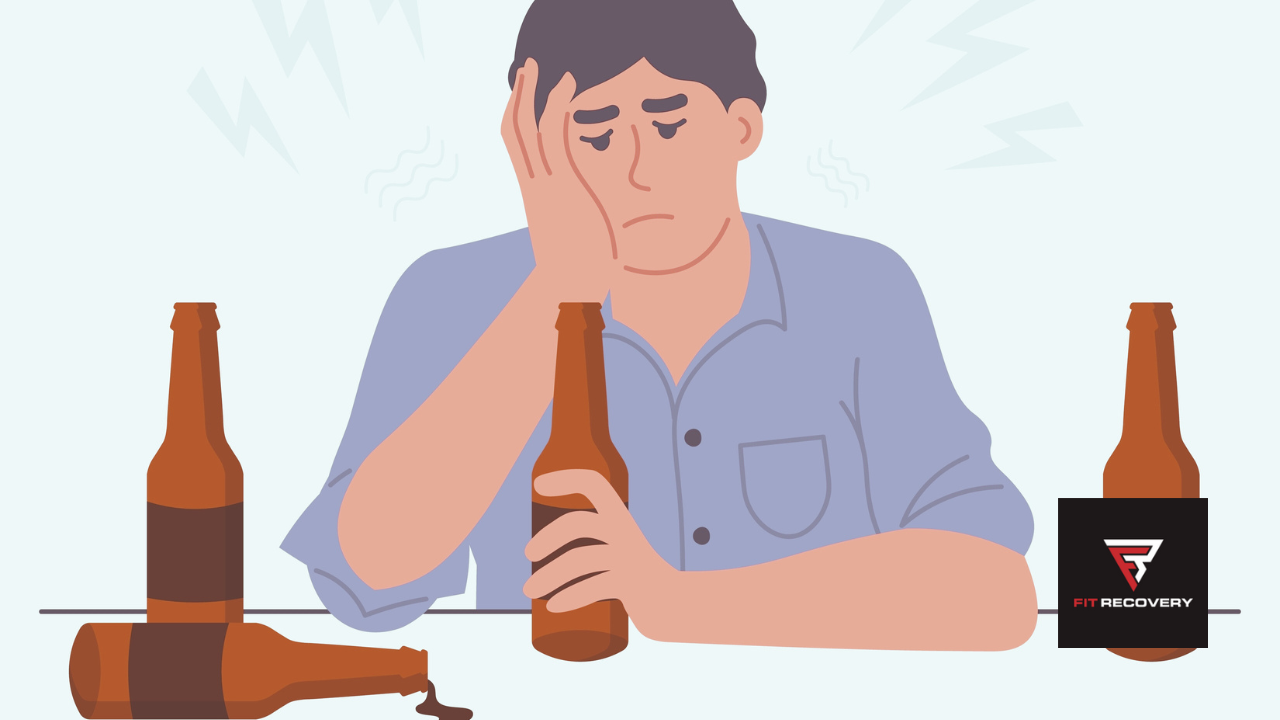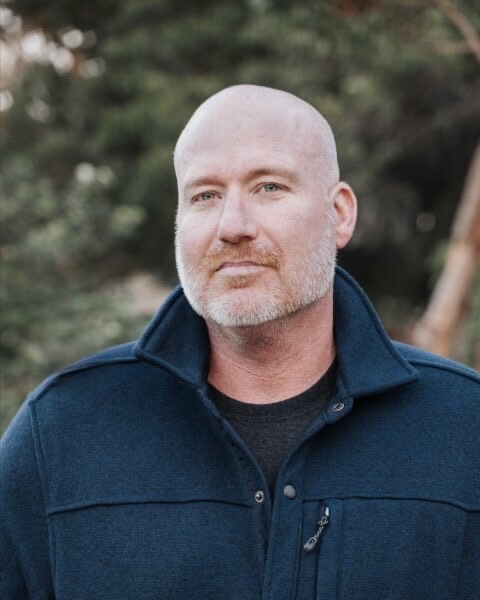
In this article, you’ll discover one of the main issues driving alcohol-drinking behavior today.
According to John Umhau, MD, “The significant cause we see today is this inflammation which drives drinking.”
Dr. John Umhau’s emerging research on the inflammation-alcoholism connection he describes as a sinister five-stage cycle where alcohol consumption causes inflammation…
Which causes unpleasant symptoms (that are relieved by more alcohol consumption)…
Creating an addictive and painful cycle that can be tricky to come out of.
After learning about the inflammatory cycle of alcohol consumption, you’ll be well on your way to restoring your health and wellness.
By the end of this article, you’ll know the following key concepts:
- Who is Dr. John Umhau?
- How excessive alcohol consumption causes inflammation
- How inflammation causes unpleasant or even debilitating symptoms
- How a drink of alcohol temporarily relieves inflammation and unpleasant or debilitating symptoms
- How to restore health to your gut microbiome
- And last but not least, Dr. Umhau’s recommendations for alcohol use disorder recovery
In the next section, you’ll learn a brief background on John Umhau, MD.
Then, I will present you with his emerging research on the inflammatory cycle of alcohol consumption and how to reverse the cycle using natural and affordable remedies.
I hope you’re ready to go on an exciting exploration with me.
Let’s begin!
Who is Dr. John Umhau?
Dr. John Umhau runs alcoholrecoverymedicine.com. Before that, he was a commander in the United States Public Health Service and worked as a medical officer at NIH, FDA, and IHS.
He studied at Davidson College, Wake Forest University, and Johns Hopkins University, earning a BS, MD, and MPH.
He’s also a certified physician executive, has completed a residency in clinical preventive medicine at Johns Hopkins University, and is board-certified in addiction medicine and preventive medicine.
Dr. Umhau is also a friend of Fit Recovery, and Chris Scott has interviewed him twice.
He is super intelligent, compassionate, down to earth, and one of the top experts in the world on alcohol use disorder and its effective treatment.

Okay, now you’re almost ready to learn about this vicious five-stage cycle of inflammatory alcohol consumption.
But first, here’s some background info to help you frame it.
How Inflammation Drives Drinking
Inflammation drives drinking. I’ll repeat the quote from the intro of this article. “The significant cause we see today is inflammation, which drives drinking,” Dr. Umhau states.
“I think it’s primarily due to the effect of the gut and microbiome and the permeability of the gut barrier, which causes what is commonly referred to as leaky gut,” he adds.
A leaky gut is when excess lipopolysaccharide debris from dead bacteria, also called endotoxin, leaks into the bloodstream excessively, which can cause real problems.
It’s increased by a change in the microbiome, a less diverse microbiome.
Dr. Umhau says we can get that from antibiotics, processed foods, food additives, and a reduction in omega-3s, which he says are a real prebiotic or a substance that increases the microbiome’s diversity.
Chemical messengers (cytokines) cause brain inflammation and sickness response:
- Fever
- Fatigue
- Social withdrawal
- Poor appetite
- Insomnia
- Increased pain
- Depression
- Irritability
- Violent behavior
- Reduced libido
- More anxiety
- Less pleasure
- Brain fog
- Sadness
The above symptoms are the body’s protective measures to protect humans when fighting infections.
Dr. Umhau says, “One reason people drink is to alleviate these symptoms.”

“The inflammatory cycle of alcohol consumption is really underappreciated,” he adds.
The 5-Stage Inflammatory Cycle of Alcohol Consumption
Now that you have a little background data, you’re ready to learn about the five stages of the inflammatory cycle of alcohol consumption.
Understanding this cycle will shed light on the inflammation-alcoholism connection.
Here are the five phases of the inflammatory cycle of alcohol consumption:
- Excessive alcohol alters the gut microbiome and causes leaky gut, which leaks bacterial debris (endotoxin) into circulation.
- Endotoxin causes liver inflammation, liver cirrhosis, and inflammatory cytokines, causing neuroinflammation.
- Heavy alcohol consumption allows inflammatory cytokines to enter the brain.
- The brain mounts this tremendous inflammatory response, which stops any new nerve growth and causes symptoms like anxiety, depression, loss of control, and nerve cells death. All of this is worse when the diet is crappy.
- Hangover symptoms are relieved by the temporary anti-inflammatory effect of a drink of alcohol.
Prefrontal Cortex Degeneration and Regeneration
Dr. Umhau also says, “The brain scans of patients with alcohol use disorder show atrophied brain white matter, and when you lose white matter, you lose the connections between executive functions of the brain, the prefrontal cortex, PFC, or the willpower area.”
He notes that brain connections are disrupted, inflammation and atrophy in the following ways:
- A degraded brain impairs willpower
- Alcohol cravings are hard to resist
- No insight, denial of their problem
- Personality changes, impulsive, emotional, sociopathic
- Mental illness becomes common
Note: Brain atrophy is reversible. This is great news!

Dr. Umhau elaborates on this brain regrowth process:
“After about six weeks of no drinking, your brain volume increases by 2%, and what grows back is the white matter. The white matter tracks are growing back, so you start getting insight. So after you’ve been in your recovery program long enough, you can pay attention to what people are saying and have some insight and you may be able to break through the denial, which is such an important part of this alcohol use disorder.”
Stopping The Inflammatory Cycle of Alcohol Consumption
AUD deprives the brain of the following critical nutrients:
- Probiotics
- B vitamin complex (and the MTHFR enzyme is deficient in many addicted people. They need methylated folate, aka methylated B9)
- Vitamin K
- Omega-3 fats
- Calcium
- Zinc
- Vitamin D
- Magnesium
- Vitamin C
- and lithium orotate
Dr. Umhau notes that all of these nutrients are probably critical.
Healthy behaviors recommended by Dr. Umhau:
- Omega-3 fats
- Vitamins and minerals
- Prebiotics (insoluble fiber)
- Probiotics (live microorganisms, fermented foods, EG lactobacillus GG)
- Exercise
- Organic food
- Zinc
- and coffee
Dr Umhau says:
“One thing that I think is fascinating is that increased omega-3 increases the short-chain fatty acid production in the gut microbiome. So the increased microbiome element is butyrate, which is one of the three keto bodies. The butyrate from the microbiome elements signals the brain to create more brain-derived neurotrophic factor or BDNF, and that increases brain growth. So instead of having inflammation causing a reduction in new nerve growth, you have BDNF and butyrate increasing brain growth. It’s the yin yang between inflammation or butyrate and BDNF acting on the brain. And if you’ve got brain growth, you can get new ideas about drinking and insights and your brain works better. My patients routinely tell me their head is clearer. This is one of the most sensitive ways we can tell our nutritional therapy is working. Patients think better and understand that this is really happening and related to their diets.”
To end this article…
Here are a handful of generalized treatment plan foundational habits that Dr. Umhau commonly recommends to his patients with alcohol use disorder:
- Eat the best diet possible to repair the microbiome: no processed foods, omega-6 oil, corn syrup, or gluten.
- Supplement with probiotics, omega-3, vitamins and minerals.
- Exercise (especially outdoors with family and friends).
- Get a support group to reduce shame and be encouraged.
- Maintain alcohol abstinence or continue with person-centered harm reduction or alcohol moderation and switching to less concentrated drinks and tracking and recording each drink of alcohol with or without medication-assisted treatment depending on the goals of each individual.
Thanks so much for reading. Please share this article with anyone you think would benefit from it.
Take good care of yourself and check out Fit Recovery 2.0 for quitting drinking using our Hierarchy of Alcohol Recovery Model.
Author
-
Matt Finch, the Fit Recovery Head Coach, embodies the power of transformation. With over 13 years of freedom from both alcohol and opioids, he has turned his personal journey into a beacon of hope for others. Previously a Certified Substance Abuse Counselor at an outpatient treatment center, he has dedicated his life to empowering individuals to break free from the chains of addiction. Through his innovative recovery coaching programs, he has joined forces with Chris Scott and Fit Recovery, inspiring thousands to overcome their struggles. By offering one-on-one recovery coaching, engaging group sessions, and dynamic online courses, along with his uplifting podcast, "The Matt Finch Show: Fit Recovery 2.0 Members-Only Alcohol-Free Lifestyle Podcast," he illuminates a path to a healthier, addiction-free lifestyle.
View all posts Fit Recovery Head Coach






